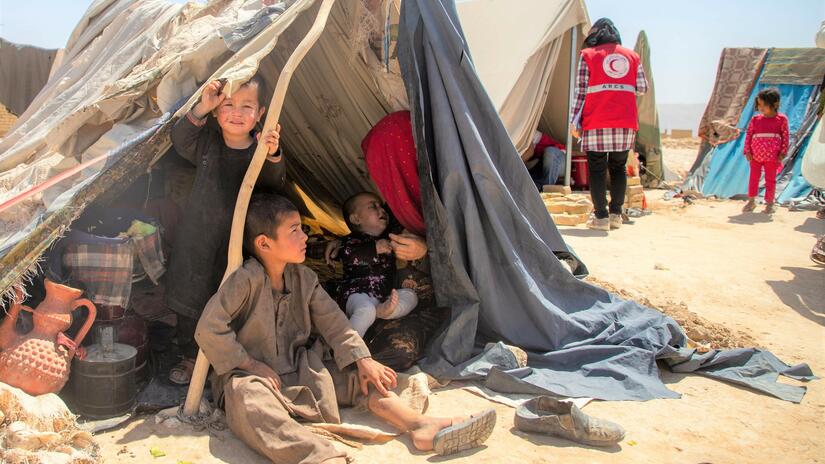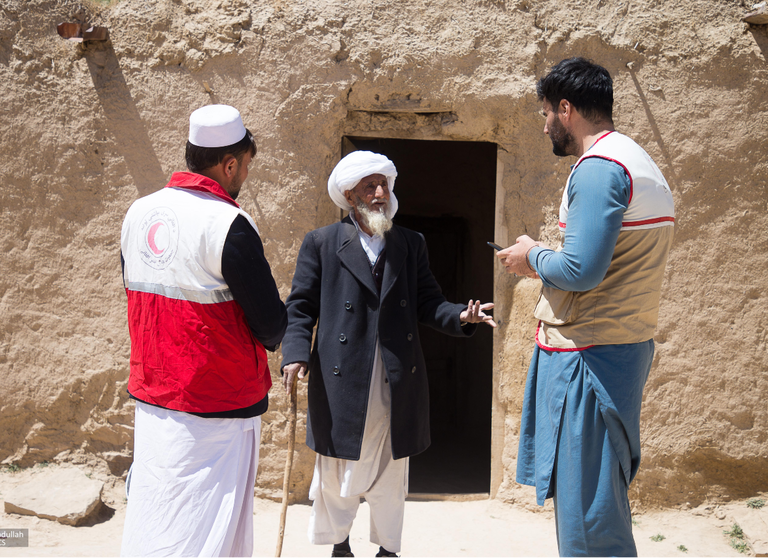Kuala Lumpur/Kabul/Geneva 15 August – The International Federation of Red Cross and Red Crescent Societies (IFRC) is renewing its call for increased global solidarity with the people of Afghanistan who continue to face immense humanitarian need.
Simultaneous crises in the country have caused some of the worst suffering in recent generations.
A cocktail of disasters and crises has battered the country for more than a year now, with new shocks worsening conditions that were already dire. In late June, an earthquake struck south-East Afghanistan killing more than 1,000 people and destroying or damaging homes of 60,000 households leaving them exposed to the elements. Starting July into August, off-season rains brought floods that washed away livelihoods and aggravated humanitarian needs across more than 20 provinces.
Mawlawi Mutiul Haq Khales, Afghan Red Crescent Acting President, said:
"The past 12 months have been extremely difficult for our people as economic hardship, exacerbated by sanctions-related limitations to access income, piles pressure on millions who were already battling acute food insecurity, poverty, and many other shocks.
"We, in Afghan Red Crescent, have scaled up our response operation in every province and our extensive network of volunteers continues to deliver assistance which is really a lifeline particularly to those excluded even from the most basic support, especially widows and their children.
"Contributions from our local and international partners have been critical, and we are truly grateful. We are asking for continued support because millions of our people will rely on long term humanitarian interventions to meet their very basic needs."
With the support of the IFRC and other partners, the Afghan Red Crescent response operation has so far reached more than 150,000 households with food assistance and at least 15,000 households with cash distributions. Its more than 140 health facilities, among them mobile health teams, also continue to provide primary health services including routine immunizations across Afghanistan.
Humanitarian assistance needs to be sustained.
Necephor Mghendi, IFRC's Head of Delegation for Afghanistan, said:
"The people of Afghanistan cannot be forgotten. This is now one of the worst humanitarian crises in the world, with over 20 million people remaining in need of urgent assistance."
"As the world's largest humanitarian network, we are responding in many ways to help aid vulnerable communities. IFRC continues to support the Afghan Red Crescent in its humanitarian efforts, but the succession of crises and disasters is driving millions to breaking point, resulting in a massive humanitarian need that is putting immense strain on the availability of resources.
"Winter is coming, and we are worried that lives could be lost if we do not act early enough to alleviate conditions for people whose coping capacities are weakened by multiple shocks."
The IFRC and Afghan Red Crescent are ramping up preparedness for a potentially harsh winter, which will be upon the country in a few months. The greatest concern is high-altitude areas where temperatures are very likely to drop below minus-10 degrees. Procurement of winter clothing, winter boots, thermal blankets, heating stoves and other essentials is underway in readiness.
To support the Afghan Red Crescent, the IFRC has appealed to the international community for 90 million Swiss francs to deliver urgent humanitarian aid to more than 1 million people affected by multiple crises. Winter preparedness forms a critical part of the plan.
To arrange an interview, get access to audio-visuals, or for more information, contact:
Asia Pacific Office: Rachel Punitha, +60-197-913-830, [email protected]
Asia Pacific Office: Joe Cropp, +61 491 743 089, [email protected]





